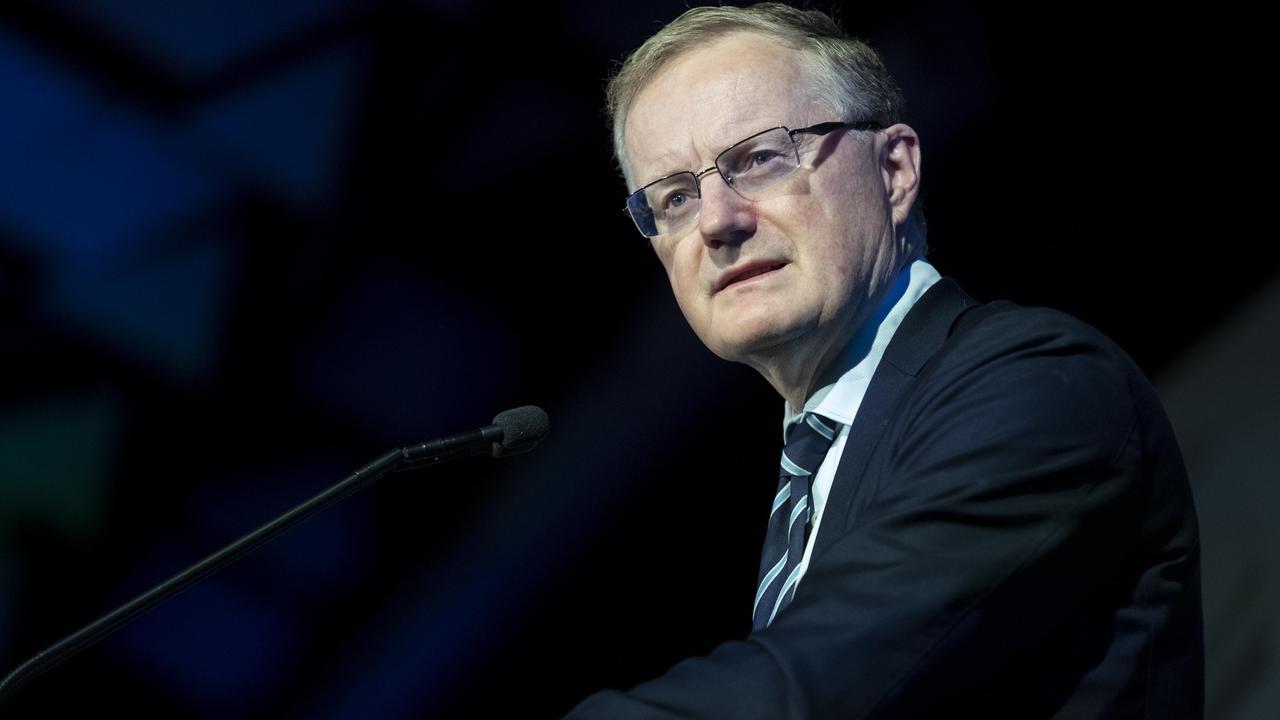For the fourth consecutive month the Reserve Bank of Australia (RBA) has hiked interest rates as inflation runs rampant.
At 2.30pm during the RBA’s monthly meeting, it increased Australia’s interest rate by 50 basis points, or by 0.5 per cent.
The decision brought the cash rate from 1.35 per cent to 1.85 per cent, largely in line with economist’s predictions.
This marks the first time the RBA has lifted the rates for four months in a row since the introduction of the two to three per cent inflation target in 1990.
This follows last week’s increase in annual inflation, which hit 6.1 per cent, which was its highest level in 21 years since 2001.
Tuesday’s rate rise means those paying off the average home loan of $500,000 will need to cough up an extra $140 a month.
And the August hike isn’t expected to be the last, with economists forecasting that interest rates could peak up to two per cent by the end of the year.
As soon as news of the interest rate rise broke, Treasurer Jim Chalmers weighed in and acknowledged it was a tough time for Australian borrowers, saying the announcement would “sting”.
“It’s another difficult day for Australian homeowners with a mortgage,” he said.
“The independent ReserveBank has just announced its decision to increase interest rates by another 0.5 per cent, bringing the cash rate to 1.85 per cent.
“Australians knew this was coming, but it won’t make it any easier for them to handle.
This cycle of interest rate rises began before the election in response to inflationary pressures that began accelerating at the beginning of this year.
“Average homeowners with a $330,000 outstanding balance will have to find about $90 a month more for repayments as a consequence of this decision today, on top of around $220 extra in repayments since early May.
“For Australians with a $500,000 mortgage, it’s about an extra $140 a month, in addition to the extra $335 they’ve had to find since early May.
“As I said, Mr Speaker, this decision doesn’t come as a surprise. It’s not a shock to anybody, but it will still sting.
“Families will now have to make more hard decisions about how to balance the household budget in the face of other pressures like higher grocery prices and higher power prices and the costs of other essentials.”
‘Misleading’: Calls for bank boss to resign
Ahead of the interest rate rise, there were growing calls for the RBA’s board and its governor, Philip Lowe, to resign after a series of missteps.
Chief among them was the promise that interest rates wouldn’t rise until 2024 which one top economist said was “misleading” for borrowers.
Critics also pointed out that the rapid rate rises could inadvertently lead to a recession while at the same time inflation is running rampant.
Warren Hogan, chief economist at both ANZ and Credit Suisse, told The Daily Telegraph that the RBA was guilty of some “pretty bad errors” in recent months.
The RBA lowered the cash rate to 0.1 per cent at the end of 2020 amid the Covid-19 pandemic – the lowest it had ever been – and throughout the pandemic said they didn’t plan on raising the cash rates until 2024.
When it lifted the cash rate for the first time in May and then every month since, Mr Hogan said it was “misleading people, basically”.
He also said Australia’s central bank had taken on risky strategies including spending lots on insurance and sinking funds into a bonds program which had not paid off.
Mr Hogan, who was also the former principal adviser to federal treasury, said: “It’s unforgivable. I think they should resign – the whole board.”
Mr Lowe “should have the character to stand down,” Mr Hogan added.
RELATED: Find out how much the rate rise will cost you
Mr Lowe said the cash rate would remain at its record low of 0.1 per cent until at least 2024, but the rapid rise in inflation this year – caused in part by Russia’s war in Ukraine and supply chain issues on home soil – prompted the monthly hikes .
It comes as Australia’s cost of living crisis is worsening, making borrowers even more cash-strapped than usual.
In the last quarter, transport costs rose 13.1 per cent as the price of fuel rose to record levels for the fourth quarter in a row.
Meanwhile, grocery shopping is also causing hip pocket pain, with Australians outraged to find lettuce heads selling for $10 a pop and capsicums marked at $15 for a kilo.
Interest rates in Australia reached an all time high of 17.5 per cent in January 1990. Since then, they have averaged 3.93 per cent.
Before this year, the last time the RBA hiked up rates was in 2010. It has only been going down ever since.
As a result, more than one million home borrowers have never experienced an increase in mortgage rates, because they bought a home after 2010.
The official cash rate has been at a record low of 0.1 per cent since November 2020 in response to the Covid-19 pandemic until May 2022.
– with NCA NewsWire
.
